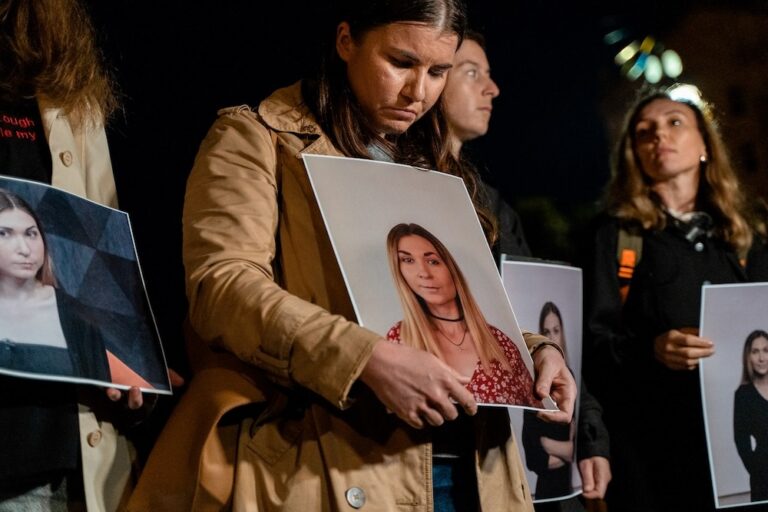(CJES/IFEX) – On 8 June 2005, Fatima Tlisova, an employee of the telegraph agency REGNUM was detained on the road to Tirnauz (southeastern Russia) by officials from the organised crime unit (UBOP) of Kabardino-Balkaria’s Interior Ministry. Kabardino-Balkaria is a constituent republic located in the northern Caucasus region of the Russian Federation. Tlisova was enroute to […]
(CJES/IFEX) – On 8 June 2005, Fatima Tlisova, an employee of the telegraph agency REGNUM was detained on the road to Tirnauz (southeastern Russia) by officials from the organised crime unit (UBOP) of Kabardino-Balkaria’s Interior Ministry. Kabardino-Balkaria is a constituent republic located in the northern Caucasus region of the Russian Federation.
Tlisova was enroute to the town of Tirnauz, Kabardino-Balkaria, when she was detained. She was to report on a meeting organised by residents of the Elbrus region to address the various social problems related to the mining mill of Tirnauz, as well opposition to attempts by Kabardino-Balkaria president Veleriy Kokov to send an envoy to the region.
The details of the incident, including an explanation of why the editorial assignment was never completed, were outlined by Tlisova in a memo to REGNUM editor-in-chief Konstantin Kozenin. The journalist reported that the car she was in was stopped at the state road traffic safety inspection (GIBDD) post. All passing vehicles were subject to an inspection.
“At the time, when an employee of GIBDD was checking my driver’s documents and inspecting the car, two plainclothes officials came up to me. One of them flashed a Kabardino-Balkaria UBOP special representative identity badge and demanded I show him my ID, which I did. When questioned about my accreditation, my official registration in the territory of Kabardino-Balkaria and my business trip documentation, I explained in detail that I was an employee of a federal mass media outlet on a legal business trip. By this time my driver, who had been questioned and let go by the militia, came back to the car, and off we went. However, when we had driven about 30 metres, we were stopped by a whistle. UBOP officials who had talked to me caught up with our car. One of them positioned himself on the front seat beside the driver, the other one got in the back. The driver was told to turn around and drive back to Nalchik, to ‘the base’, which in their language means UBOP office,” Tlisova reported in the memo.
Attempts to find out why the car was re-routed were unsuccessful. Tlisova was told that after the road inspection, the UBOP officers had reported to their chief about her and were ordered to detain the journalist and deliver her to UBOP offices.
On arrival in Nalchik, Tlisova refused to enter the UBOP premises. She requested a lawyer and a summons, along with an explanation as to why and in what capacity she was being held. The journalist later reported that threats were made to get her to enter the building. When she refused, a man came out to her and produced an identity badge showing him to be the head of the UBOP Religious Extremism Unit, Beslan Mukozhev.
Tlisova tried to find out one more time on what grounds she was being obstructed from carrying out her editorial assignment. Mukozhev responded that the person who was with her in the car was on a list of religious extremists, which was why the journalist had been detained. Tlisova reported in her memo that Mukozhev admitted to holding a negative attitude towards the mass media in general. After this statement he declared that she was free to go. The driver, Andemirkan Guchaev, an employee of the regional office of the all-Russian national fund Elbrus, was carrying proper documents at the time.
By the time Tlisova was let go, the meeting in Tirnauz had ended, which leads her to believe that authorities were trying to obstruct her professional activities. She added that on the same day, a REN-TV crew was also put under pressure by the militia. Pavel Sirotin, a REN-TV correspondent, told her that their car had been detained at the same road traffic control post until the meeting was over.
“First we were told that a bridge was broken, and that we would not get through. Then some other ridiculous excuses were offered. Eventually, we were told right to our face that they would not let us pass because they had their orders to hold the press back,” Sirotin said.


